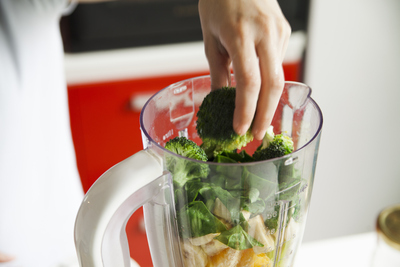Eczema Diet Tips: What is the Best Diet for Eczema Relief?

If you have eczema (atopic dermatitis), it’s hard enough to avoid flare ups as the weather turns cooler and drier. But just as you need to change your environmental factors and how you care for your skin, you also need to consider what you are putting in your body.
Believe it or not, what you eat and drink can contribute greatly to your flare ups. It’s all about inflammation. Nothing you eat (or don’t eat) will cure your eczema. That’s, unfortunately, going to stay with you through your adulthood. However, you can make eczema-smart choices in your daily diet to reduce uncomfortable, itchy flare ups.
Foods to Avoid if You Have Eczema
Certain foods, including nuts, milk, and wheat, can trigger the release of inflammation-causing T cells and immunoglobulin-E. Other foods that commonly cause eczema flare ups include eggs, dairy, soy, citrus, tomatoes, gluten, and even some spices such as cloves, cinnamon, and vanilla.
For those with dyshidrotic eczema (eczema of the hands and feet), foods that contain nickel make exacerbate symptoms. These include canned meats, chocolate, seeds, beans (including soy), peas, shellfish, and even some black teas.
Try an Elimination Diet
How do you know if what you’re eating or drinking is causing your eczema to flare up? Typically, if you have any food sensitivities, you’ll have a reaction somewhere between 30 minutes to more than a couple of days after ingesting it. This can make it difficult to pin point.
If you are not sure what is causing your flare up, you can try an elimination diet. Add one of these common culprits to your diet and monitor your reaction over a few weeks. Track your body’s response, if any. If you do not discover any noticeable effects, add the next ingredient and test again. If you do discover an ingredient that is causing your eczema flare ups, it’s time to remove it from your diet completely.
What You Should Be Eating
If you suffer from food sensitivities, you’re better off swapping the above offenders with anti-inflammatory foods. This will reduce the immune system’s response. Adding omega-3 fatty acids to your diet is a great start. Fatty fish including sardines, salmon, albacore tuna, herring, and mackerel are all good options. Foods high in flavonoids like cherries, apples, broccoli, leafy greens and fruits work wonders to battle inflammation as well. You can also add foods with the live active cultures found in probiotics to your diet. Think kombucha, kimchi, yogurt, kefir, and sauerkraut.
Sometimes by simply changing your diet, you can reduce a lot of the suffering than comes with eczema flare ups. If you’re not sure what would work best for you, ask one of Schweiger Dermatology Group’s board-certified dermatologists. Schedule an appointment online or by calling 844-DERM-DOC
